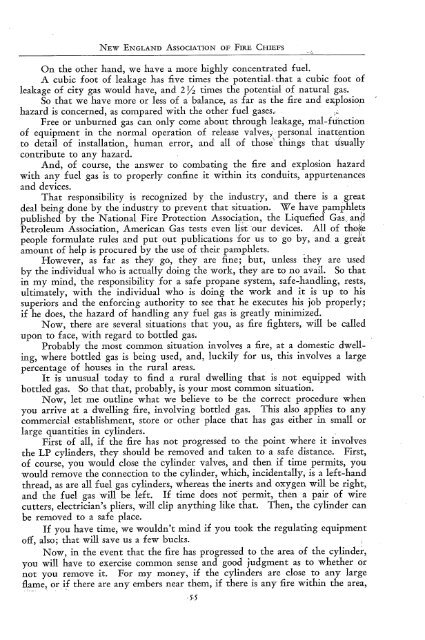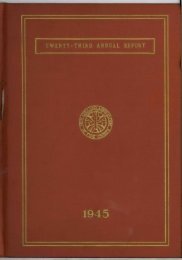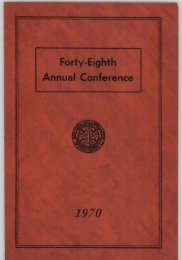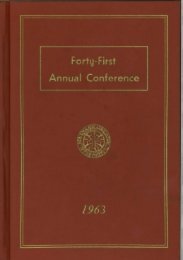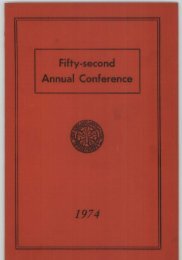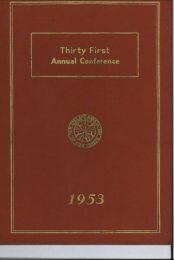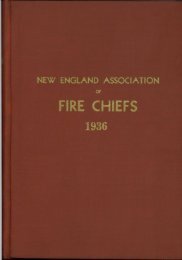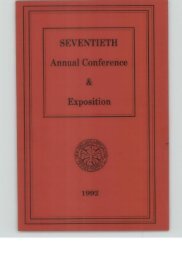NEAFC 32nd Annual Conference.pdf - New England Association of ...
NEAFC 32nd Annual Conference.pdf - New England Association of ...
NEAFC 32nd Annual Conference.pdf - New England Association of ...
Create successful ePaper yourself
Turn your PDF publications into a flip-book with our unique Google optimized e-Paper software.
NEw ENGLAND ASSOCIATION OF Free CHIEFS<br />
On the other hand, we have a more highly concentrated fuel.<br />
A cubic foot <strong>of</strong> leakage has five times the potentiaL that a cubic foot <strong>of</strong><br />
leakage <strong>of</strong> city gas would have, and 2 ½ times the potential <strong>of</strong> natural gas.<br />
So that we have more or less <strong>of</strong> a balance, as far as the fire and explosio n<br />
hazard is concerned, as compared with the other fuel gases... ~-~<br />
Free or unburned gas can only come about through leakage, mal-£ttiaction<br />
<strong>of</strong> equipment in the normal operation <strong>of</strong> release valves,! - personal inatt~ention<br />
to detail <strong>of</strong> installation, human error, and all <strong>of</strong> those ’~ things that ffsually<br />
contribute to any hazard.<br />
And, <strong>of</strong> course, the answer to combating the fire and explosion hazard<br />
with any fuel gas. is to properly confine it within its conduits, appurtenances<br />
and devices.<br />
That responsibility is recognized by the industry, and there is a great<br />
deal being done by the industry to prevent that situation. We have pamphlet.s<br />
published by the National Fire Protection Associ.aFion, the Liquefied Gas. an.~l<br />
Petroleum <strong>Association</strong>, American Gas tests even lis.c ~our devices. All <strong>of</strong> tho~e<br />
people formulate rules and put out publications for us to go by, and a gre~t<br />
amount <strong>of</strong> help is. procured by the use <strong>of</strong> their pamphlets.<br />
However, as far as they go, they are fine; but, unless they are used<br />
by the individual who. is actually doing the work, they are to no avail. So that<br />
in my mind, the responsibility for a safe propane system, safe-handling, rests,<br />
ultimately, with the individual who is doing the work and it is up to his<br />
superiors and the enforcing authority to see that he executes his. job properly;<br />
if he does, the hazard <strong>of</strong> handling any fuel gas is. greatly minimized.<br />
Now, there are several situations that you, as. fire fighters, will be called<br />
upon to face, with regard to bottled gas.<br />
Probably the most common situation involves a fire, at a domestic dwelling,<br />
where bottled gas is being used, and, luckily for us, this involves, a large<br />
percentage <strong>of</strong> houses, in the rural areas.<br />
It is unusual today to find a rural dwelling thae is not equipped with<br />
bottled gas. So that that, probably, is. your most common situation.<br />
Now, let me outline what we believe to be the correct procedure when<br />
you arrive at a dwelling fire, involving bottled gas. This also applies to any<br />
commercial establishment, store or other place that has gas either in small or<br />
large quantities in cylinders. ¯<br />
First <strong>of</strong> all, if the fire has not progressed to the point where it involves<br />
the LP cylinders, they should be removed and taken to a safe distance. First,<br />
<strong>of</strong> course, you would close the cylinder valves., and then if time permits, you<br />
would remove the connection to the cylinder, which, incidentally, is a left-hand<br />
thread, as are all fuel gas cylinders, whereas the inerts and oxygen will be right,<br />
and the fuel gas will be left. If time does not permit, then a pair <strong>of</strong> wire<br />
cutters, electrician’s pliers, will clip anything like that. Then, the cylinder can<br />
be removed to a safe place.<br />
If you have time, we wouldn’t mind if you took the regulating equipment<br />
<strong>of</strong>f, also; that will save us a few bucks. :<br />
Now, in the event that the fire has progressed to the area <strong>of</strong> the cylinder,<br />
you will have to exercise common sense and good judgment as to whether or<br />
not you remove it. For my money, if the cylinders are close to any large<br />
fl:.a_me,~ 0r.i.f there are any embers near them, if there is any fire within the area,


